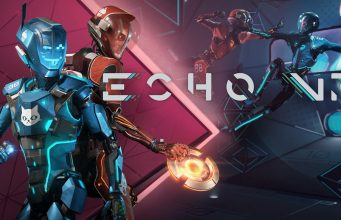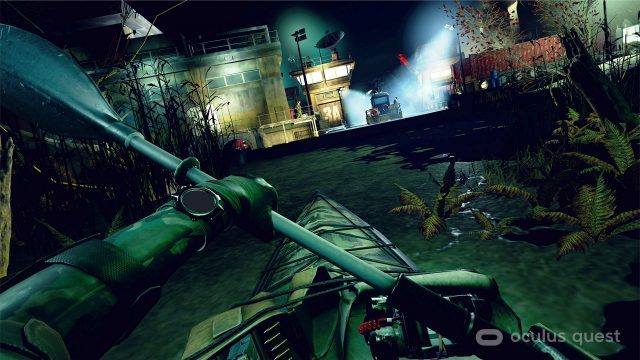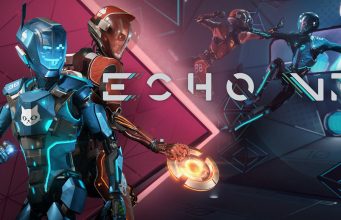‘Echo VR’ Online Play is Back with the Help of This Unofficial Mod
Meta shut down Echo VR, one of its best-performing VR games, in early August. At the time, it seemed like there was little hope for fans to ever play again, but now a modder has released an experimental project that brings unofficial online matches back to the zero-G sports game.
Created by David ‘Xenomega’ Pokora, the so-called ‘EchoRelay’ mod for the PC VR version of the game has brought back online services, which includes both Echo Arena and the game’s VR shooter variant, Echo Combat. Since it’s a PC mod, there’s no such solution for the Quest version of the game unfortunately.
The mod, which the creator calls a “proof-of-concept”, allows you to either run your own server or connect to other community servers. While Pokora states in the EchoRelay’s GitHub page that it’s “not intended to host unofficial services for the public,” the project is public and can be downloaded by anyone. Granted, you’ll need a copy of Echo VR on PC to begin with, which is no longer available via Meta’s PC Store.
Moreover, Pokora says the project won’t include continued support. “This project will never aim to go beyond the scope of personal educational research,” Pokora says, maintaining that there won’t be any further feature completion beyond what’s already available.
Still, while the GitHub page has been archived, enterprising modders can still fork the project and make changes there—something that Meta may or may not condone.
Check out the features below:
- Extended Echo VR command-line arguments to launch the game:
- As an offline client (no server)
- As a dedicated game server
- In windowed mode (no VR headset)
- In headless mode, a console-based process with no graphics or audio
- Use -noovr without -spectatorstream, allowing demo profiles with a VR headset or in windowed mode
- Support for most standard in-game features:
- Social Lobby
- Echo Arena
- Echo Combat
- Local AI matches
- Public or private match game types
- NO Cooperative AI matches
- Spectator and Game Admin (moderator) support
- Support for different client flows (e.g. -lobbyid, which requests joining a specific lobby by UUID)
- NO Partying-up with friends in a squad
- NO Persisted armor changes/updates across game sessions
- Support for basic server operator and administrator flows:
- Kick users from game session
- Ban accounts until a given date/time
- Enforce allowed/denied clients through IP-based Access Control Lists.
- Modify server-provided resources such as accounts, login settings, channel descriptions, etc.
- Support for most network messages, e.g. profile fetches and updates, server resource fetching, matching, etc
‘Echo VR’ Online Play is Back with the Help of This Unofficial Mod Read More »





